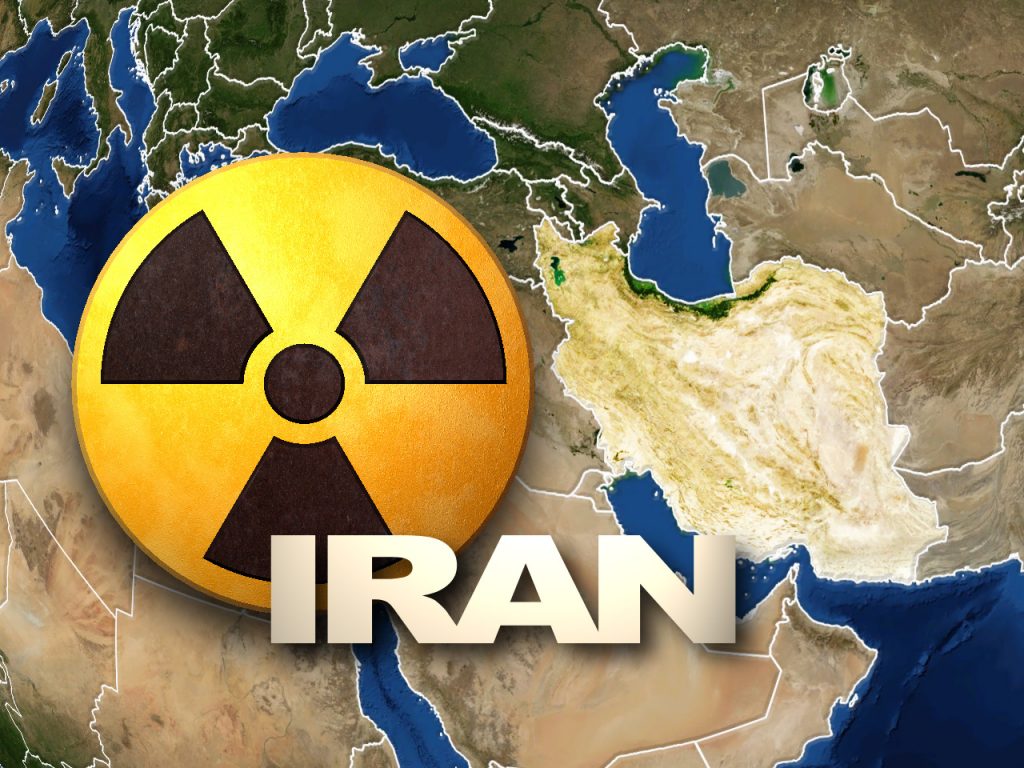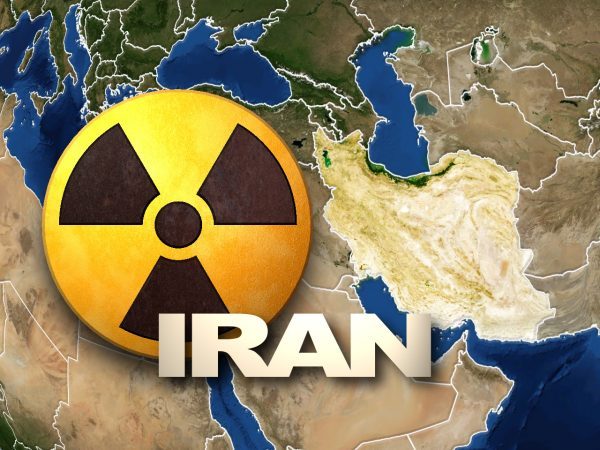By Raghida Dergham

Iran’s diplomats are scrambling to mobilise European, Chinese and Russian support to pressure the Biden administration into rejoining the Joint Comprehensive Plan of Action (JCPOA) without pre-conditions. They are also seeking international support for US-led sanctions to be lifted, including those on oil exports and arms imports.
These diplomatic efforts, led by Foreign Minister Mohammad Javad Zarif, should not be construed as separate from Iran’s core foreign policy priorities being shaped by its Supreme Leader Ayatollah Ali Khamenei and its Islamic Revolutionary Guard Corps (IRGC) militia. Rather, Tehran as a collective is pursuing a dual track of blackmail and provocation.
It is betting on what it perceives to be US President Joe Biden’s attempt to revoke his predecessor Donald Trump’s 2018 withdrawal from the nuclear deal in his bid to stop Iran’s resumption of uranium enrichment and rapid development of nuclear weapons. Since Mr Trump abandoned the deal, Iran has been building up its stockpile of low-enriched uranium, refining uranium to a higher level of purity and using advanced centrifuges for enrichment.
Mr Biden has said that if Tehran resumes strict compliance with the 2015 agreement, Washington would rejoin it.
The European Union is keen to revive the JCPOA. It is seen to be backtracking from previous statements calling for the deal to cover Iran’s regional behaviour and ballistic missiles programme, and is instead working on mending its ties to Tehran. Russia, meanwhile, has been cautious as it keeps in mind the two powers’ coinciding interests in Syria, where Moscow and Tehran both support the Assad regime. During Mr Zarif’s recent visit to Moscow, he sought to win support from Russian counterpart Sergey Lavrov not just on the nuclear issue but also on Iran’s role in the region.
As I have written in these pages, Russia is keen to bring long-term stability to Syria by getting Iran and Israel to the table. But it remains to be seen whether Moscow can convince Israel to cease targeting Iranian assets in Syria if Tehran reduces its military footprint there and keeps its Lebanese proxy Hezbollah at bay. Right now, the focus is on trying to revive the JCPOA.
That Tehran is raising the stakes is evident from recent remarks made by its diplomats. Mr Zarif has warned that if no progress is made by mid-February, his government could step up its uranium enrichment activities. Iran’s ambassador to the UN, Majid Takht-Ravanchi, also said that the US must act quickly or risk missing a chance to return to the JCPOA. It is worth noting that Iran’s hardline-dominated parliament has set February 21 as the deadline for Washington to lift sanctions against Tehran.
The regime appears confident of extracting concessions from the Biden administration, as it is convinced that the revival of the nuclear deal has become Washington’s problem. It also believes that it can escalate tensions when required – something the Biden team will not want right now.
Amid Tehran’s lobbying efforts, the US is figuring out the best way forward. Some members of the Biden team, notably National Security Adviser Jake Sullivan, have sought to return to the deal as quickly as possible – a goal he has described as a “critical early priority” for the administration. But others, such as Secretary of State Antony Blinken, have expressed reservations about doing so. He has repeated Mr Biden’s line of Tehran needing to resume compliance. Mr Blinken has also said that these conditions are not being satisfied at the moment.
On Friday, Tehran received what conservative critics in the US would characterise as good news upon hearing that Mr Biden had appointed Robert Malley, the Obama administration’s lead negotiator in the nuclear deal, as his special envoy for Iran. It is, indeed, a move that could portend a reversal of former Mr Trump’s maximum pressure campaign.
Mr Malley’s appointment could be controversial even within the Biden team, on account of his interest in reviving the nuclear deal and lifting sanctions against Tehran. Those opposed to him in Washington may fear that his entry will embolden the IRGC to further its regional agenda, which includes supporting armed proxies in Iraq, Lebanon and Syria. Mr Malley’s critics might also blame him to some extent for the Obama administration’s allegedly calculated decision to overlook the atrocities being committed by the Tehran-backed Syrian regime, in order to persuade the Iranians to sign the JCPOA
That was, of course, more than five years ago. This time, however, Mr Blinken – himself an Obama administration official – is said to be in no hurry to commit anything to anybody. This approach benefits the US negotiating position as well as American interests, because giving in to Iranian pressure will only expose Washington to what is essentially blackmail.
It would not be a mistake for Mr Blinken and Mr Sullivan to agree to preliminary, backchannel talks with Tehran – provided that they manage Iranian expectations and present a clear roadmap to them.
There is an opportunity if the Biden administration decides to not fear Iranian retribution and learn lessons from past mistakes. The administration will also do well to recall that it has real and effective leverage over Tehran. Whether it accepts it or not, that leverage is available to them due in large part to the Trump administration’s tough tactics against the regime. The Biden administration must now use it achieve what is in its best interests, as well as those of its allies in the region.
Raghida Dergham is the founder and executive chairwoman of the Beirut Institute and a columnist for The National
THE NATIONAL


Leave a Reply
You must be logged in to post a comment.